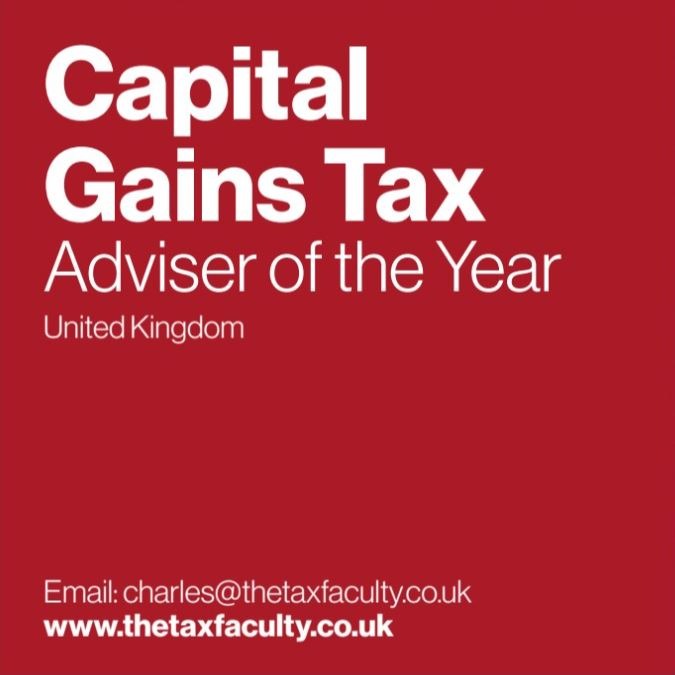Top 5 Year-End Tax Tips for the Self-Employed – Maximise Your Savings Before April 5th
The end of the tax year is fast approaching! If you're self-employed, now is the perfect time to review your finances and take advantage of tax-saving opportunities. From boosting your pension contributions to making the most of ISAs, these five expert tips will help you minimise your tax bill and secure your financial future. Read on to ensure you're making the most of your money before April 5th.
HMRCPENSIONSTAX TIPSCGTISA
The Tax Faculty
3/12/20254 min read


5 Essential Year-End Tax Tips for the Self-Employed
As the April 5th tax deadline looms, self-employed individuals have a crucial opportunity to reduce their tax burden and plan for a more secure financial future.
With no employer contributions to rely on and fluctuating incomes, tax planning is vital. Here are five expert-endorsed tax tips to ensure you're making the most of your allowances and deductions before the cut-off date.
1. Get Your Pension Back on Track
Saving for retirement can be challenging for self-employed individuals due to irregular income. However, pensions offer significant tax relief, making them an essential tool for long-term financial security.
✔️ Maximise contributions when you can – Flexibility is key! If you had a good year, consider making a lump-sum contribution before the tax year ends.
✔️ Tax relief – For every £100 you contribute, HMRC adds £25, and higher earners can claim even more through self-assessment.
✔️ Carry forward unused allowances – You can use any leftover pension allowance from the past three years to boost your contributions.
If you’re aged between 18 and 39, a Lifetime ISA (LISA) could be a better retirement savings vehicle than a pension, particularly for basic-rate taxpayers.
✔️ Tax-free growth – The government adds a 25% bonus on contributions up to £4,000 per year.
✔️ No tax on withdrawals at age 60 – Unlike pensions, LISAs allow 100% tax-free withdrawals in retirement.
✔️ Alternative to a pension – If you’re unsure about pension contributions, a LISA provides a flexible way to save with excellent tax benefits.
2. Consider a Lifetime ISA (LISA) for Retirement Savings


Self-employed individuals often pay themselves via dividends, which are subject to tax after just £500 in earnings. Using an ISA can help avoid unnecessary tax payments.
✔️ Stocks & Shares ISAs – Protect investments from dividend and capital gains tax.
✔️ Cash ISAs – Tax-free interest on savings, ideal for an emergency fund.
✔️ Bed & ISA process – Transfer existing investments into an ISA to shield them from future tax liabilities.
3. Use ISAs to Protect Savings & Investments from Tax
If you hold investments outside of tax-efficient wrappers like ISAs or pensions, you may face Capital Gains Tax (CGT) on profits exceeding £3,000.
✔️ Sell and reinvest within an ISA to protect future gains from taxation.
✔️ Plan ahead if selling a business – Selling in a high-income year could increase tax liability, so consider spreading the sale over multiple tax years if possible.
✔️ Use your spouse’s allowance – If married, you can transfer assets to your spouse to use their tax-free CGT allowance.
4. Reduce Capital Gains Tax with an ISA
One of the biggest perks of using an ISA? You don’t need to declare it on your tax return. Unlike dividends or rental income, savings and investments inside an ISA stay completely off HMRC’s radar.
✔️ Simplify your tax return – No need to track dividends or capital gains.
✔️ Stress-free investing – Save time and hassle during tax season.
✔️ Maximise your ISA allowance – Up to £20,000 per year can be saved tax-free!
5. ISAs Keep You Off the Self-Assessment Radar
With just weeks left before the end of the tax year, now is the time to review your finances and make the most of available tax-saving opportunities. Here's what to do next:
✅ Review your pension and ISA contributions – Can you top them up before the deadline?
✅ Check if a Lifetime ISA suits your long-term goals – It could be a smarter choice than a pension.
✅ Move investments into ISAs – Protect your savings from dividend and CGT charges.
✅ Seek professional advice – A tax expert can help you make the most of these strategies and avoid costly mistakes.
At The Tax Faculty, we specialise in helping self-employed individuals optimise their tax planning and keep more of their hard-earned money. If you need advice before the tax year ends, contact us today for a free consultation!
📩 Book your consultation via email, WhatsApp, or phone.
Final Thoughts – Act Now Before April 5th!
Capital Gains Tax Expertise: The Tax Faculty LLP Managing Partner Charles Tateson Named UK Capital Gains Tax Advisor of the Year 2023
The Finance Monthly Taxation Awards recognises the achievements of tax professionals from around the globe.
Winning such an award is no small feat. It is a reflection of hard work, extensive knowledge, and an ability to navigate the intricacies of the UK tax system.
Read more about Charles and the award here.



Contact Us
Contact us today on freephone 0800 0016 878 for a free consultation on all tax issues, or fill out the handy form below and we'll get back to you as soon as possible.
Alternatively, you can email us at info@thetaxfaculty.co.uk or complete the form below.
(Please note, non-UK callers may need to call 0207 101 3845 if your line cannot connect to our 0800 number)
Feel free to contact us through WhatsApp - we accept calls and messages.
Simply click the WhatsApp button below:
The Tax Faculty LLP - info@thetaxfaculty.co.uk
Call us on 0800 0016 878 for a free consultation
Copyright © 2024 The Tax Faculty LLP - All Rights Reserved


